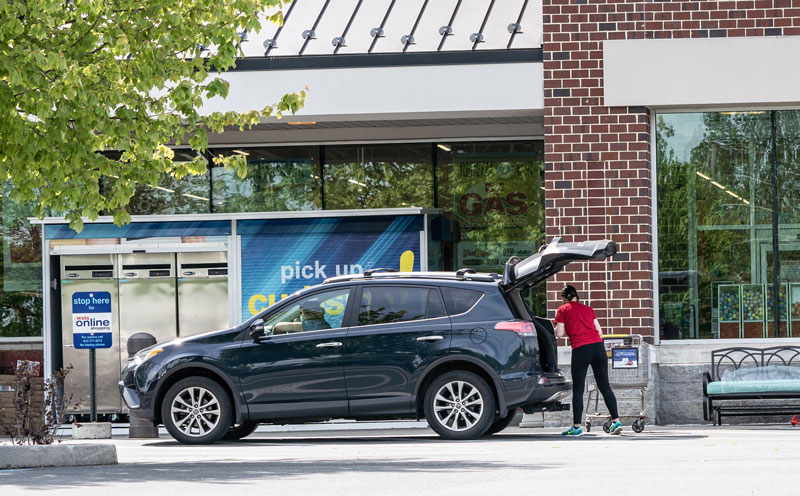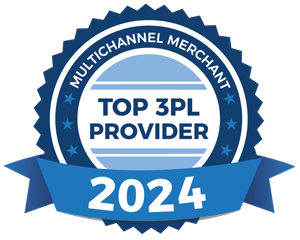How a 3PL Can Help Brands and Retailers Win the 2020 Holiday Fulfillment Season
The busiest shopping season of the year is almost here. And industry experts say it will start earlier than it’s ever have and shift even more into the ecommerce realm – thanks to a rash of circumstances made possible by, you guessed it, Covid-19.
The past several months left retailers and brands crazed as they adapt to new consumer shopping habits by optimizing their ecommerce supply chain to meet online demand and keep customers happy. Now it’s time for everyone to buckle up for what’s sure to be unprecedented year-end activity.
Predictions for Q4 Consumer Shopping Habits

The busiest shopping season of the year is almost here. And industry experts say it will start earlier than it’s ever have and shift even more into the ecommerce realm – thanks to a rash of circumstances made possible by, you guessed it, Covid-19.
The past several months left retailers and brands crazed as they adapt to new consumer shopping habits by optimizing their ecommerce supply chain to meet online demand and keep customers happy. Now it’s time for everyone to buckle up for what’s sure to be unprecedented year-end activity.
By now, brands know they’ll likely experience Q4 ecommerce sales volume unlike any other they’ve experienced before. Here’s why:
Global ecommerce penetration will be record-breaking.
Based on the online shopping habits we’ve seen so far in 2020, it’s projected that up to 30% of all global retail sales will be made through digital channels this holiday season.
More U.S. consumers will buy online this holiday season.
Key findings from a recent PowerReviews survey say that over two-thirds of consumers will do more shopping online and less shopping in-store. This trend falls in line with numbers reported earlier this year – when this summer, about 60% of consumers said they were shopping less frequently at brick and mortar stores.
Some consumers will increase their holiday 2020 spending over last year.
Despite current economic conditions which have proven challenging for many, over 70% of consumers say the amount of money they plan to spend this holiday season will stay the same or increase.
What Retailers and Brands Should Be Ready For

Here are a few of the biggest predictions that retailers and brands should be ready for as they enter the peak holiday fulfillment season:
Early Holiday Buying
Holiday shopping is predicted to start earlier than ever before, fueled in part by Amazon Prime Day 2020, which was delayed for several months but is now happening October 13 and October 14. Exclusively for Prime members, Prime Day has become one of Amazon’s biggest and most discounted shopping days of the year.
Riding the tails of Prime Day is Cyber Week, which kicks off the Monday after Thanksgiving. With these two ecommerce events now happening just weeks apart, the climate is ideal for many consumers to start their holiday shopping early.
Delivery Challenges
Many industry sources are reporting that packages being shipped by traditional carriers will exceed capacity by 5% across the globe between Thanksgiving and Christmas. If you do the math, there’s potential for 700 million packages not delivering in time for the holidays. Which is another reason why some consumers are planning their shopping strategy now – so they’re not impacted by shipping delays or out-of-stock products caused by the pandemic’s effect on the global ecommerce supply chain.
Stores as Fulfillment Centers
Traditional brick and mortar stores aren’t going anywhere, but the biggest role they’ll likely take on in Q4 is that of a fulfillment center. More and more retailers are offering – or will be offering – a mix of BOPIS (Buy Online, Pick Up in Store) options including in-store pickup, curbside pickup, and even drive-through pickup. It’s predicted that retail locations offering these services could see as high as a 90% increase in online sales compared to the 2019 holiday season.
5 Ways a 3PL Can Help with Peak Fulfillment Periods
So how can you be best prepared for early holiday shoppers and delivery challenges – and have your brick and mortar locations set up and ready to operate as smooth-running fulfillment centers? Get help from a reputable third-party fulfillment partner that can offer a level of expertise that most brands with in-house fulfillment capabilities don’t have.
#1 – Real-Time Transparency in Allocating Inventory
The last thing a brand needs as holiday sales start to ramp up is inventory shortages due to transportation delays, stocking delays, or limitations on shelf availability – which can happen at some distribution centers including those for Amazon FBA sellers. Another contributor to inventory issues can be inadequate tracking and reporting tools.
Leading 3PLs are equipped with robust reporting portals that offer the critical transparency needed for fast and accurate inventory allocation. These sophisticated portals give clients real-time visibility to data and inventory activity so they can make adjustments fast without having to pick up the phone and call someone for the latest warehouse numbers. Most reporting portals have alerts such as PO receiving and item re-order points for supply chain visibility.
#2 – Fast, Seamless Integration Across Multi Channels
As retailers and brands continue to improve their online presence and focus more on ecommerce sales, they can’t lose collective sight of all their sales channels. Having seamless integration across multiple channels is important.
The advantage of working with a 3PL for multi-channel integration is they’re already working with a long list of the industry’s top integration providers. They’re also focused on constantly monitoring the market and investing in new integration solutions that their customers can benefit from.
#3 – Retail Compliance Expertise
Timely and accurate retail distribution across all channels is critical for any brand, especially during peak fulfillment periods. Not having a solid understanding of a retailer’s vendor compliance and routing guidelines can not only prevent your inventory from reaching its final destination but it can lead to costly chargebacks from retailers.
Retailer compliance rules and regulations have grown in complexity in recent years. Experienced 3PLs have the technology, processes, bench strength and expertise to seamlessly execute retailers’ routing and compliance guidelines.
PFC Fulfillment supports multiple channels and compliance guidelines for a variety of products including health and beauty, apparel and accessories, supplements and cosmetics, and consumer goods. The multi-channel environment we work with includes direct to store, distribution center, retailer drop ship, boutique stores, and direct to consumer. Our retail and wholesale distribution systems are functional with most major retail data exchange platforms like EDI, FTP and AS2.
#4 – Shipping Power
The established relationships and bargaining power that 3PLs have with major shipping carriers can provide significant time and cost savings to retailers. This is especially important during peak fulfillment times, when the big carriers set aggressive peak-season surcharges. In previous years, UPS and FedEx would implement holiday surcharges for the period of October through December. This year, USPS and others are following suit as well.
Primarily due to Covid-19, two other big changes are taking place in the shipping world for Q4. First, carriers are no longer offering guaranteed delivery dates. Second, ship-by dates for ensuring delivery by Christmas are occurring earlier in the month of December.
#5 – Timely Returns and Customer Service
When brands are focused on managing inventory and fulfilling orders, it can be difficult to think about how to best manage product returns. But as ecommerce sales climb, so do the customer returns. The 2020 holiday fulfillment season could see record-breaking numbers on returns. Retailers and brands could be better prepared if they partner with a 3PL that offers a Return Merchandise Authorization (RMA) solution that integrates directly into their ecommerce channels and gives customers the ability to make fast and easy self-service returns.
Some 3PLs also offer direct consumer support services to help handle the influx of consumer inquiries that happen during peak fulfillment times. And since consumer service channels are a direct extension of a retailer’s brand, it’s important to handle all inquiries quickly and to the satisfaction of each customer.
Contact PFC Fulfillment
Contact PFC Fulfillment today to learn more about our full-service capabilities and how we can help you win your next holiday fulfillment season.

